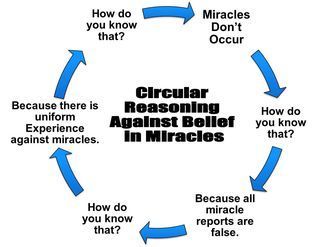Why Some People Simply Will Not Be Convinced
I spent last week with Frank Turek (at the CrossExamined Instructors Academy) and Bobby Conway (the One Minute Apologist)
training and talking about the evidence for God’s existence and the
reliability of the Gospels. The three of us have dedicated ourselves to
helping people overcome their skeptical objections to the Christian
worldview, but all of us recognize that some people will simply not be
convinced by our arguments and presentation of evidence. In fact, I know
that most people will not be convinced. Why? Because (as I’ve written in Cold Case Christianity) there are three reasons why someone will “shun” (reject) a truth claim:
Some Reject Ra”shun”ally
Sometimes
folks simply have rational doubts based on the evidence. You’ll
recognize this form of resistance when you hear someone say something
akin to, “I need more evidence. I’m not convinced.” For those of us who
have taken the time to prepare ourselves as good Case Makers, this is
the kind of skeptic we are hoping for; someone who’s resistance is
grounded in a lack of information. Unfortunately this seldom the kind of
person we encounter.
Some Reject Emo”shun”ally
Many
people have doubts that are purely emotional. You’ll recognize this
form of resistance when you hear someone say something like, “I know a
lot of hypocritical Christians. If that’s what Christianity is about, I
want no part of it.” Some skeptics have been injured or offended by
Christians and now struggle to overcome negative feelings that prevent
them from evaluating the case fairly.
Some Reject Voli”shun”ally
When I was an atheist, I denied the truth for volitional reasons. I was willfully resistant and refused to accept any argument offered by Christians I knew. In fact, I actually hated the idea
of God and all it represented. I was happy running my own life; I was
stubbornly independent. People like me typically say things like, “I
don’t care if it is true, I’m not changing my life.”
If you’re a
Christian trying to make the case for what you believe, recognize that
your jury is filled with all three kinds of people, and only the first
group will probably be willing to listen to your presentation. I’ve
discovered most people actually fall into the third category; their
willful resistance to the truth actually prevents them from fairly
examining the case for Christianity. Frank Turek offers an excellent
example of this in his “I Don’t Have Enough Faith to Be an Atheist”
presentation. As part of his four step argument, he engages the issue
of miracles, and offers a brief example of how a volitional
presupposition can actually prevent you from recognizing a miracle, even
if one occurred in your own life.
David Hume famously argued against miracles,
on the basis that we humans have no “uniform experience” of such
events. But if we start with a volitional presupposition against the
miraculous, this willful foundation will prohibit us from any fair,
rational inference from our observations. In other words, we know the
experience against miracles to be “uniform” only if we accept all
reports of miracles as false. And we know all reports to be false only
if we begin from the position miracles have never occurred. In essence,
our volitional resistance leads us to reason in a circle.
While
you and I can do our best to present the evidence to our unbelieving
friends, there is clearly a foundational, presuppositional problem in
the heart of man. Our own desires and love of autonomy (our rebellion
from God) typically stand in the way of our investigation. I am an
evidentialist; I believe in the power of the evidence when presenting
the case for God’s existence. But I know that God had to do something with my heart before I could see the evidence fairly,
and no friend of mine could accomplish this with his or her evidential
presentation. So as I share the case with my skeptical friends, I begin
by praying God will remove their enmity so they can hear my words with
clarity and interest. I know volitional and emotional resistance is
often the reason some people will not be convinced.
Subscribe to J. Warner’s Daily Email




